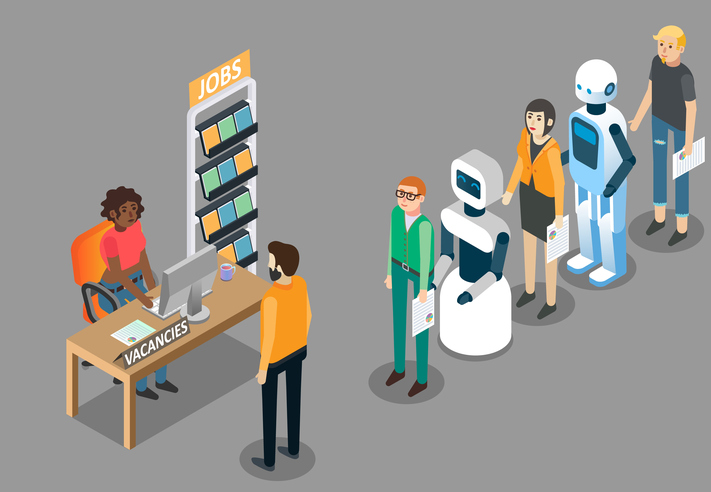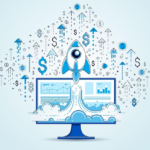The advent of artificial intelligence (AI) is significantly reshaping the landscape of the job market. This transformative force is not only altering current job roles but also paving the way for new opportunities.
In this post, we will delve into the ‘AI job market impact,’ touching upon both the prospective challenges and the optimistic outlook for workers worldwide.
The Transformative Power of Artificial Intelligence
Artificial intelligence’s influence on the job market is multifaceted, touching various industries from manufacturing to healthcare. As AI systems become more sophisticated, they are automating routine tasks, leading to fears of job displacement.
However, it is essential to view AI not just as a disruptor but also as a catalyst for job creation. The development of AI is leading to the emergence of new job titles and roles that were unimaginable a few decades ago.
For instance, roles in AI ethics, machine learning engineering, and data annotation are rapidly growing, showcasing the birth of a new era in employment.
Understanding the ‘AI job market impact’ comprehensively requires acknowledging both the temporary displacement it may cause and the long-term employment opportunities it creates.
Industries at the Forefront
Industries such as technology, healthcare, and finance are already witnessing significant transformations due to AI. Automation and AI tools are improving efficiency, diagnostic accuracy, and personalized finance solutions.
Despite initial fears, these industries are creating new job roles that emphasize human-AI collaboration. Jobs focusing on managing AI systems, ethical considerations, and personalized customer interactions are becoming more prevalent.
This paradigm shift illustrates the dual nature of the ‘AI job market impact’ – while some jobs are becoming obsolete, others are evolving or being created.
Reskilling and Upskilling: The Path Forward
As the job market transforms, the need for reskilling and upskilling becomes paramount. Workers will need to adapt to new tools and technologies to stay relevant.
Educational institutions and businesses alike are beginning to recognize the importance of teaching skills that complement AI, such as critical thinking, creativity, and emotional intelligence.
Moreover, technical skills related to AI, such as coding and data analysis, are becoming increasingly valuable across various sectors.
The focus on continual learning and adaptation is crucial for individuals to navigate the changing landscape successfully.
Government and Policy Implications
Government policies play a crucial role in mitigating the negative ‘AI job market impact’ while enhancing its positive aspects. Strategies include incentivizing AI research that focuses on augmenting human work rather than replacing it.
Additionally, social safety nets and retraining programs are essential to support workers transitioning between jobs due to AI-driven changes.
The collaboration between governments, educational institutions, and the private sector is vital in creating a robust ecosystem that supports a healthy AI-integrated job market.
The Ethical Dimension
As we embrace the changes brought about by AI, addressing the ethical implications is essential. Ensuring that AI development and deployment are equitable and do not exacerbate existing inequalities is crucial.
Policymakers and corporations have a responsibility to consider the societal impact of AI and work towards inclusive growth that benefits all segments of society.
Looking Ahead: A Future Shaped by AI
The ‘AI job market impact’ is an evolving narrative with both challenges and opportunities. As AI continues to develop, it will undoubtedly shape the future of work in unprecedented ways.
Embracing AI as a tool for enhancement rather than replacement, focusing on the human aspect of job roles, and fostering a culture of lifelong learning are key to thriving in this new era.
In conclusion, the ‘AI job market impact’ is complex and multi-faceted, offering both reasons for concern and grounds for optimism. By adopting a proactive and adaptive approach, society can harness AI’s power to create a more efficient, innovative, and inclusive job market.


